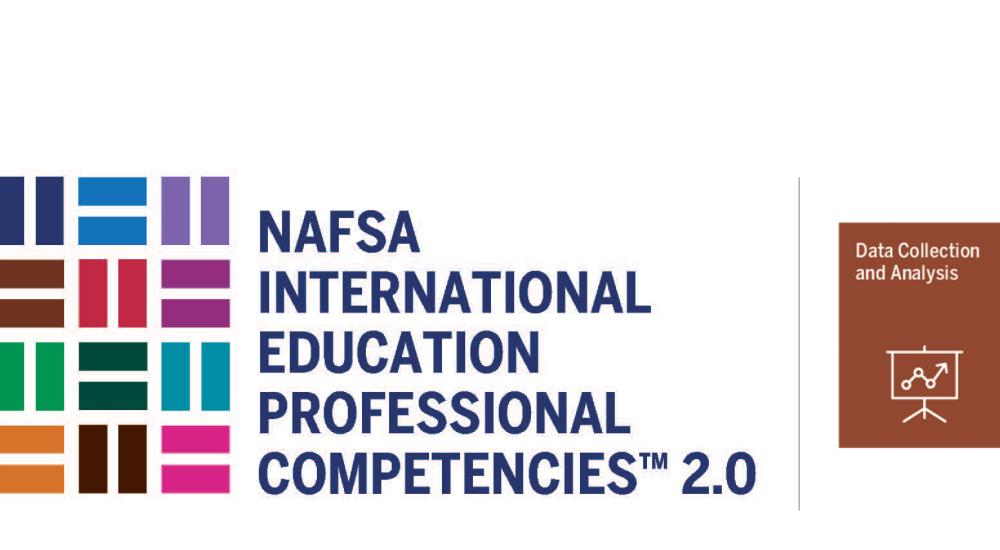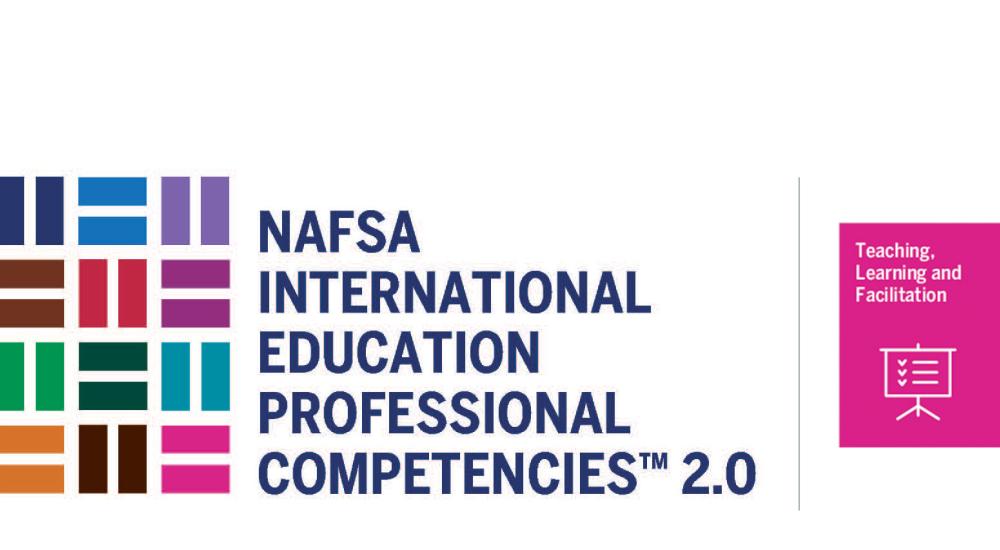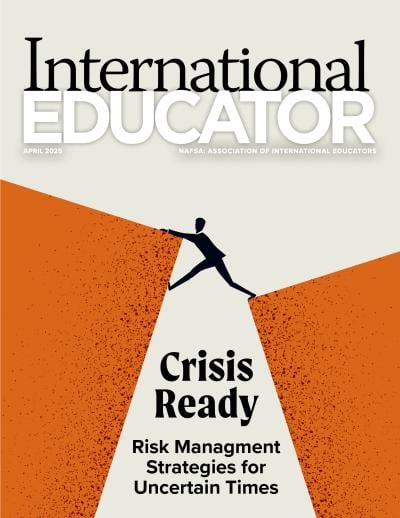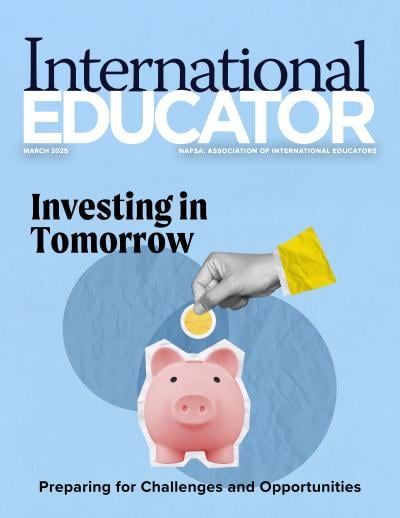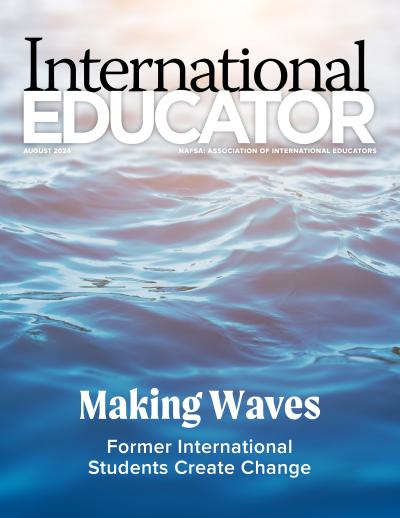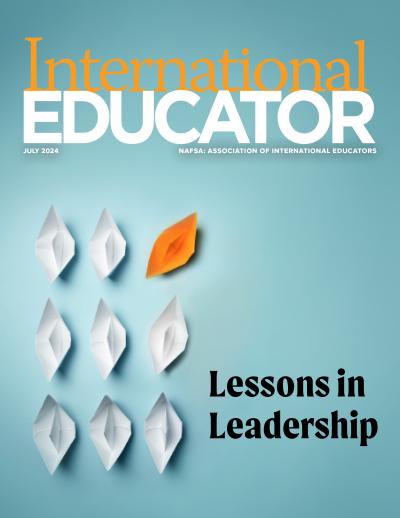Reflections on the NAFSA IE Competencies: People Development
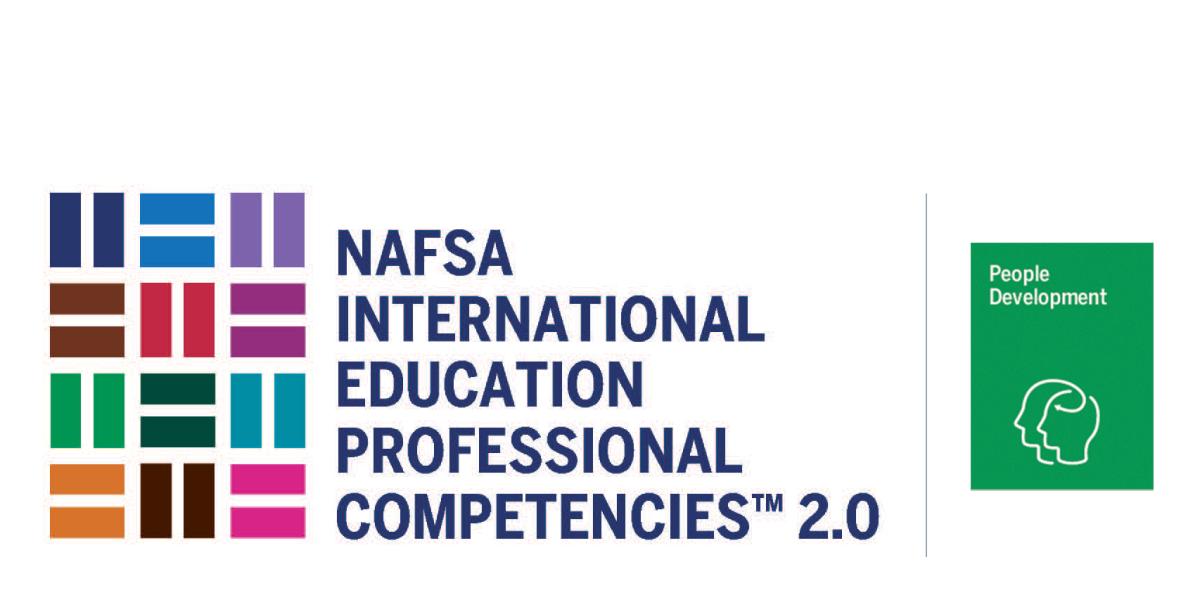
Editor’s note: This article is one in a new series for 2023 that explores one of the 12 International Education Professional Competencies 2.0 in each issue of International Educator. Each written by a NAFSA member, the articles cover how that competency is critical to the future of the field and what it looks like in practice.
No matter where someone sits in the field of international education, people are the profession’s greatest resource. They make departments and organizations run well; they ensure effective learning experiences are delivered on time and on budget; and they share data and stories about those learning experiences. In order to recruit, train, and retain the best talent possible, it is critical to pay attention to people development.
As described in NAFSA’s International Education Professional Competencies 2.0, people development focuses on supporting “opportunities for colleagues, peers, and staff to gain valuable experience, find their passion, and realize their full professional potential.” This competency focuses on recruiting talent; encouraging opportunities for growth; coaching and mentoring; and fostering team building. And, honestly, for me it is one of the most fun professional competencies, just behind program development and delivery and teaching, learning, and facilitation. Below are three concepts that guide my approach to people development.
1. Everyone (including those in leadership and management positions) needs a professional development plan.
International education is a dynamic field. No one comes into the field already knowing everything they need to know, and even with years of experience, there is always something new to learn. It is crucial to work with team members to explore areas for growth and opportunities to support their strengths. Perhaps, for example, there is a colleague who is fantastic at program design but who could use a little help with budgeting and would love to learn more about facilitating intercultural learning. Building a professional development plan that helps them achieve both of these goals will make them a more well-rounded colleague who can, in turn, help their peers with their own growth.
2. Professional development does not always need to involve courses, workshops, and conferences (although these can be great and enriching experiences).
Coaching, mentoring, and cross-training are excellent professional growth opportunities for both team members and managers. Managers should take an inventory of the skills that their team members have. If there is someone with a skill that they would like others to learn they can talk with them about training their peers. This gives staff members a chance to increase their coaching capabilities while helping the rest of the team develop needed skills.
3. Cultivate and reward a spirit of life-long learning.
Ideally, employees who are interested in and enthusiastic about the work that they do will also be excited about finding opportunities to improve their skills. When recruiting new hires, managers should explore not only what skills they will bring to the team but also which ones they are excited about learning next. A good way to help colleagues grow is by asking about their interests and sharing articles, workshops, and other opportunities around those interests. Those in leadership should set an example by seeking out opportunities to learn new skills then sharing them and letting their staff members know that they encourage them to do the same.
I love designing and delivering effective and impactful programs, but I also love finding ways to ensure that the members of my team enjoy and are successful at their work. Finding ways to help team members achieve their goals and find their passion can be just as rewarding as direct program delivery, and it can result in a more engaged, excited, and impactful team. •
NAFSA Resources
About International Educator
International Educator is NAFSA’s flagship publication and has been published continually since 1990. As a record of the association and the field of international education, IE includes articles on a variety of topics, trends, and issues facing NAFSA members and their work.
From in-depth features to interviews with thought leaders and columns tailored to NAFSA’s knowledge communities, IE provides must-read context and analysis to those working around the globe to advance international education and exchange.
About NAFSA
NAFSA: Association of International Educators is the world's largest nonprofit association dedicated to international education and exchange. NAFSA serves the needs of more than 10,000 members and international educators worldwide at more than 3,500 institutions, in over 150 countries.
NAFSA membership provides you with unmatched access to best-in-class programs, critical updates, and resources to professionalize your practice. Members gain unrivaled opportunities to partner with experienced international education leaders.


